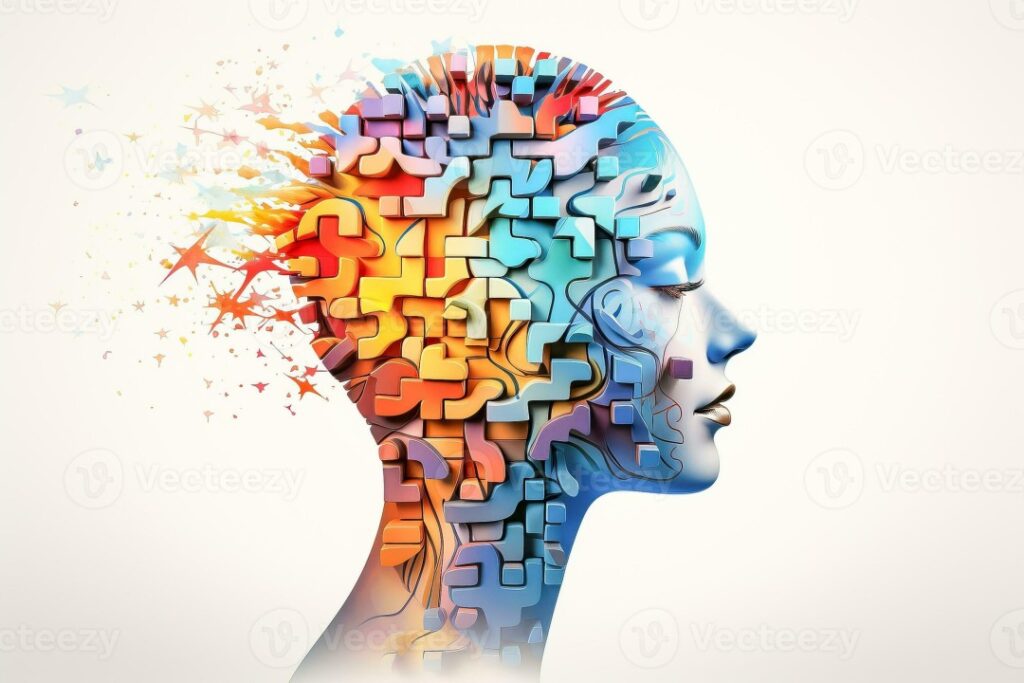Table of Contents

Introduction
What drives individuals to chase their dreams, follow their passions, and strive for success? This intriguing question has captivated the minds of psychologists and researchers for decades, seeking to unravel the intricate tapestry of human behavior. Motivation, the catalyst that propels us into action, is a multifaceted and deeply complex phenomenon that plays a pivotal role in shaping our destinies.
Whether it’s the ambition to excel in our careers, the aspiration to lead a healthy lifestyle, or the urge to build strong, meaningful relationships, understanding the mechanisms of motivation is essential to unlocking our true potential.
This blog post aims to delve into the psychology of motivation, exploring various theories and factors that influence what fuels our actions. Through this exploration, we can develop strategies to bolster our own motivation and assist others in doing so, thereby enriching our lives and leading us closer to achieving our ambitions.
The Psychology of Motivation: Unraveling the Mysteries
Motivation, in essence, is the driving force behind our actions and decisions. It is the psychological process that initiates, guides, and maintains behavior towards a specific goal. In the quest to comprehend this intricate force, psychologists have developed a multitude of theories that aim to explain why we are motivated to do what we do. These theories provide a foundation for understanding the nuances of motivation and can offer invaluable insights into how we can harness its power to live our best lives.
Maslow’s Hierarchy of Needs: A Foundation for Understanding Motivation
One of the most recognized theories in the realm of motivation is Abraham Maslow’s hierarchy of needs. Maslow posited that human beings are motivated by five fundamental categories of needs: physiological, safety, love and belonging, esteem, and self-actualization. These needs are arranged in a hierarchical order, with physiological needs (such as food, water, and sleep) being the most fundamental and self-actualization (the desire to achieve one’s full potential) residing at the pinnacle.(Psychology of Motivation)
Maslow’s theory suggests that individuals are motivated to fulfill these needs sequentially, starting with the most basic level. Once a lower-tier need is satisfied, the individual is propelled to seek fulfillment of the next level of needs. For instance, a person grappling with the challenge of meeting their physiological needs may not be motivated to pursue esteem or self-actualization until their basic requirements are met. This hierarchy provides a lens through which we can examine and understand what motivates individuals at different stages of their lives and tailor our approaches to cater to their specific needs.
Self-Determination Theory: The Pursuit of Autonomy, Competence, and Relatedness
Self-Determination Theory (SDT), introduced by psychologists Edward Deci and Richard Ryan, suggests that motivation is significantly influenced by three basic psychological needs: autonomy, competence, and relatedness. Autonomy refers to the necessity to feel in control of one’s own life and decisions. When we perceive our actions as self-directed and aligned with our core values, we are more likely to be intrinsically motivated.(Psychology of Motivation)
Competence is the need to feel capable and effective in our interactions with the external world. The belief in our ability to achieve success fuels our motivation to confront challenges and pursue our goals. Relatedness, on the other hand, is the need to feel connected to others and to experience a sense of belonging. A strong support system can provide the impetus to maintain relationships and contribute to the collective well-being of our social circles.(Psychology of Motivation)
SDT posits that when these three psychological needs are met, individuals are more likely to develop intrinsic motivation. This form of motivation is characterized by the desire to engage in an activity for its inherent enjoyment and satisfaction, rather than for external rewards or pressures. Intrinsic motivation has been linked to greater well-being, persistence, and creativity. Understanding these fundamental needs can help us create environments that foster intrinsic motivation and encourage personal growth.


Achievement Motivation Theory: The Interplay of Needs for Achievement, Power, and Affiliation
David McClelland and John Atkinson’s Achievement Motivation Theory highlights three central needs that govern behavior: the need for achievement, the need for power, and the need for affiliation. The need for achievement is the propensity to strive for excellence and success in challenging tasks. Individuals with a high need for achievement typically set lofty goals for themselves, are inclined to take calculated risks, and seek feedback on their performance to assess their progress.(Psychology of Motivation)
The need for power is the desire to influence and control others, which may manifest in the pursuit of leadership roles, competitive activities, and the quest for recognition and status. These individuals derive satisfaction from the impact they have on their surroundings and the outcomes of various situations. Lastly, the need for affiliation is the yearning to form close relationships and a sense of belonging. Those with a strong need for affiliation are motivated by social interactions, the formation of support networks, and the maintenance of harmonious relationships.(Psychology of Motivation)
This theory underscores the notion that motivation is a multifaceted construct influenced by a unique interplay of these three needs. By recognizing the dominant motivational drivers in ourselves and others, we can better navigate various contexts and tailor our approaches to align with these underlying needs.
Expectancy-Value Theory: The Synergy of Belief and Desire
Expectancy-Value Theory, developed by John Atkinson and Martin Fishbein, breaks down motivation into two primary components: expectancy and value. Expectancy is an individual’s belief in their capacity to succeed in a given task or attain a particular goal. If one is confident in their ability to achieve the desired outcome, their motivation to pursue that goal is likely to be higher. Conversely, a lack of self-efficacy can lead to diminished motivation.(Psychology of Motivation)
Value, on the other hand, refers to the significance or allure of a specific goal or outcome. When a goal resonates with an individual’s values, interests, and needs, they are more likely to be motivated to pursue it. The theory posits that motivation is the product of these two factors. Therefore, the higher one’s expectancy of success and the greater the perceived value of the goal, the stronger their motivation will be.(Psychology of Motivation)
Factors Influencing Motivation: Delving Deeper into the Intricacies
While theories offer a structured approach to comprehending motivation, various factors can influence our motivational levels on a day-to-day basis. Examining these factors can provide us with a more nuanced understanding of what drives us and enable us to develop strategies to bolster our motivation.
The Dichotomy of Intrinsic and Extrinsic Motivation
A critical factor influencing motivation is the distinction between intrinsic and extrinsic motivation. Intrinsic motivation arises from the inherent satisfaction and enjoyment derived from an activity. It is driven by internal rewards, such as the pleasure of mastering a new skill or the challenge of overcoming a hurdle. Extrinsic motivation, by contrast, is driven by external factors, such as rewards or the avoidance of punishment.(Psychology of Motivation)
Research has consistently demonstrated that intrinsic motivation is associated with higher levels of perseverance, creativity, and well-being. When individuals are intrinsically motivated, they are more likely to engage in activities for the joy and personal fulfillment they provide, rather than for external incentives or pressures. While extrinsic motivation can be effective in driving behavior, particularly for tasks that are not inherently enjoyable, the ultimate aim should be to cultivate intrinsic motivation to achieve sustainable and meaningful success.(Psychology of Motivation)


Goal-Setting: The Roadmap to Success
Setting goals is a crucial aspect of motivation. Effective goal-setting involves establishing objectives that are specific, challenging, and attainable. By breaking down larger goals into smaller, more manageable milestones, individuals can maintain a sense of progress and sustain their motivation over time.
The SMART framework (Specific, Measurable, Achievable, Relevant, Time-bound) is a widely used tool to create effective goals. SMART goals are detailed, quantifiable, and have clear timelines, which enhances the likelihood of successful attainment. Additionally, regularly evaluating progress and celebrating achievements, regardless of magnitude, can serve as a powerful motivator. This positive reinforcement helps maintain momentum and fosters resilience in the face of setbacks.(Psychology of Motivation)
The Mindset Factor: Fixed vs. Growth Mindsets
Carol Dweck, a renowned psychologist, introduced the concept of mindset as a determinant of motivation. There are two primary types of mindsets: fixed and growth. Individuals with a fixed mindset believe that their abilities are innate and unchangeable. This belief can lead to a fear of failure and a reluctance to take on challenges, as setbacks are perceived as a reflection of their inherent limitations.
Conversely, those with a growth mindset embrace the idea that abilities can be developed through effort and experience. This perspective encourages individuals to view challenges as opportunities for learning and growth. A growth mindset is associated with increased motivation, resilience, and ultimately, greater success. By fostering a growth mindset, we can empower ourselves and others to conquer challenges and realize our full potential.(Psychology of Motivation)
Environmental and Social Catalysts for Motivation
Our surroundings and social interactions play a significant role in shaping our motivation. The physical environment can significantly impact our ability to focus and maintain motivation. A cluttered, disorganized space can be detrimental to productivity, whereas a clean, well-structured environment can enhance concentration and engagement.(Psychology of Motivation)
Furthermore, social factors such as supportive relationships and the presence of role models can be profoundly motivating. A strong social support network can bolster our resolve to pursue our goals and overcome adversity. Role models who embody the traits and successes we aspire to can serve as inspiration and provide a tangible example of what can be achieved with perseverance and hard work.
Strategies for Enhancing Motivation: Unleashing Our Potential
Equipped with an understanding of the theories and factors that influence motivation, we can now explore practical strategies to boost our own motivation and assist others in doing the same.
1. Identifying Core Values and Intrinsic Motivators
To enhance motivation, it is essential to understand our core values and intrinsic motivators. Through self-reflection, such as journaling or candid discussions with trusted individuals, we can uncover what truly drives us. By aligning our goals with our values, we can tap into a deep reservoir of intrinsic motivation.
2. Setting Achievable Goals and Tracking Progress
Setting SMART goals provides a clear pathway to success and helps maintain motivation. Breaking down larger objectives into smaller, more attainable steps makes progress feel more tangible. Regularly assessing our advancement and acknowledging our achievements, no matter how small, can serve as a potent motivator and keep us on track towards our ultimate destination.
3. Cultivating a Growth Mindset
Developing a growth mindset is vital for sustaining motivation. By embracing challenges as learning opportunities and viewing failure as a temporary setback, we can foster resilience and maintain our motivation. Engaging in self-reflection and seeking feedback are key components of this process, as they enable us to continuously improve and adapt.(Psychology of Motivation)
4. Creating a Motivating Environment
Surrounding ourselves with a conducive environment can significantly impact our motivation levels. This may involve organizing our workspaces to minimize distractions, establishing routines that promote productivity, and seeking out inspiring individuals who encourage and challenge us.(Psychology of Motivation)
5. Encouraging Autonomy, Competence, and Relatedness
By creating conditions that fulfill our psychological needs for autonomy, competence, and relatedness, we can enhance motivation. This might involve providing opportunities for personal choice and self-directed learning, offering constructive feedback, and fostering supportive relationships.(Psychology of Motivation)
6. Utilizing the Power of Rewards and Recognition
While intrinsic motivation is paramount, extrinsic rewards can serve as a complementary force. Recognizing and rewarding effort and achievement can reinforce positive behaviors and motivate individuals to continue striving for success.(Psychology of Motivation)
7. Encouraging Positive Self-Talk
The narratives we construct about ourselves and our abilities can either bolster or undermine our motivation. Encouraging positive self-talk and challenging negative self-beliefs can create a more motivating inner dialogue.
8. Seeking Inspiration and Support
Connecting with others who share our aspirations and have overcome similar challenges can be a powerful source of motivation. Joining communities, seeking mentorship, and sharing our experiences can provide the encouragement and guidance needed to sustain our motivation and navigate the path to success.(Psychology of Motivation)


Conclusion
The psychology of motivation is a rich and multifaceted field of study that offers invaluable insights into the human condition. By understanding the theories and factors that influence motivation, we can develop strategies to enhance our own drive and assist others in doing the same. Whether it’s by aligning our actions with our core values, setting challenging yet attainable goals, fostering a growth mindset, or creating an environment that supports our needs, we have the power to unlock our full potential and lead more fulfilling lives.(Psychology of Motivation)
In the pursuit of our dreams and aspirations, motivation is not merely a fleeting emotion but a sustainable force that can be cultivated and harnessed. By embracing the principles outlined in this article, we can embark on a transformative journey towards achieving our goals and living our best lives. Through the interplay of theory and practice, we can navigate the complexities of motivation and emerge as more motivated, resilient, and successful individuals.(Psychology of Motivation)